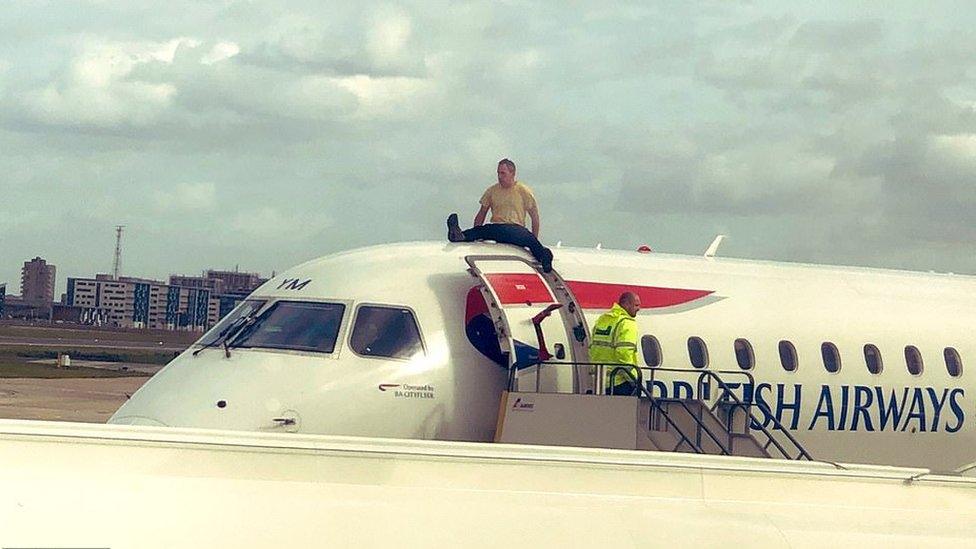Extinction Rebellion: Paralympian James Brown appeals plane glue stunt jail term
- Published

James Brown, who is visually impaired, climbed on to the British Airways plane at London City Airport in 2019
A former Paralympic champion who was jailed for gluing himself to the roof of a plane during an Extinction Rebellion protest has begun an appeal.
James Brown, who is visually impaired, climbed on to the British Airways plane at London City Airport in October 2019.
The 57-year-old glued his right hand to the Amsterdam-bound plane, wedging his phone in the door so it wouldn't close.
He was jailed in September for 12 months after being convicted of causing a public nuisance at an earlier trial.
Lawyers representing Brown have since challenged his conviction and sentence at a Court of Appeal hearing in London.
They said there had been "no reason" to charge Brown with causing a public nuisance, questioned the "proportionality" of the decision to bring the charge, and said he could have been charged with aggravated trespass.
They added the sentence was "manifestly disproportionate" and said he was suffering "unique hardship" in prison because of his disability.

Brown said he was suffering "unique hardship" in prison because of his disability
Three appeal judges, Lord Burnett - the Lord Chief Justice, Lord Justice Singh and Mr Justice Goss, are considering the case.
The appeal hearing is due to last a day.
Judge Gregory Perrins had jailed Brown, who has been registered blind since birth.
He said, when passing sentence, that Brown had "cynically used" his disability and put his "own life at risk" to carry out the stunt at London City Airport on October 10 2019.
The double gold medallist, from Exeter, climbed on to the plane, which was destined for Amsterdam, before gluing his right hand to the aircraft.
Northern Ireland-born Brown, who represented Great Britain in cycling and athletics before going on to represent Ireland in cross-country skiing, livestreamed the protest until he was removed after an hour.
Southwark Crown Court heard a total of 337 passengers had their flights cancelled, missing birthday celebrations, important business meetings and family events, with the disruption costing the airline around £40,000.
Brown, who represented himself at his trial, denied one count of causing a public nuisance, claiming he had "to do something spectacular" to draw attention to the climate crisis.
He was found guilty, in July, after a jury deliberated for less than an hour.
- Published28 July 2021
